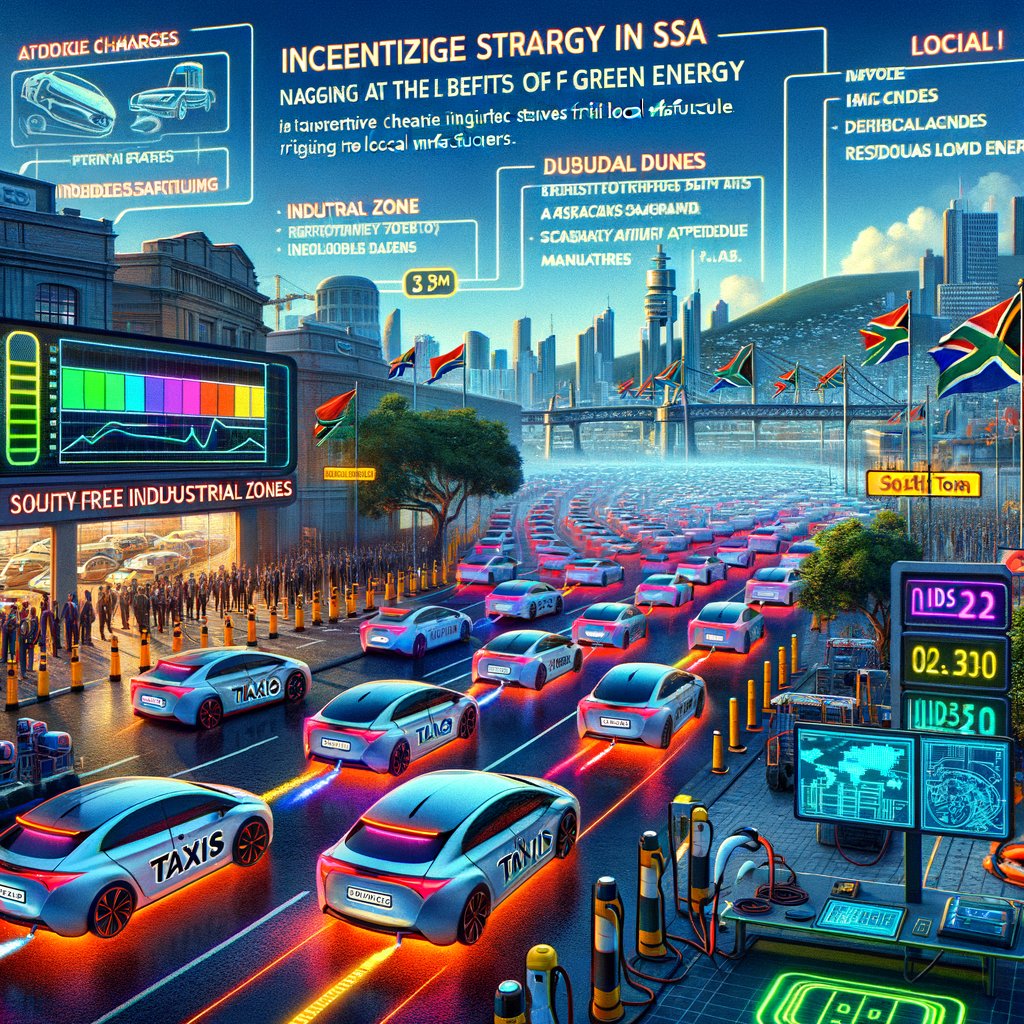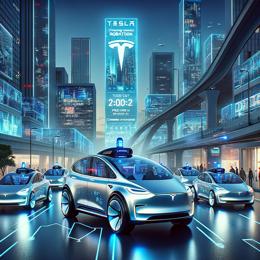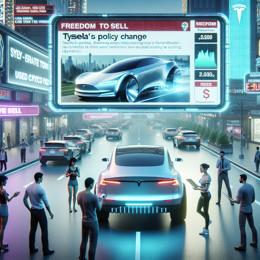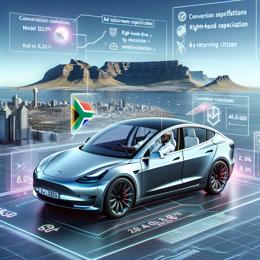Image created by AI
South Africa Proposes R80,000 EV Incentives to Spark Electric Mobility
South Africa is gearing up to drive the future with President Cyril Ramaphosa’s latest announcement on government incentives for new energy vehicles (NEVs). These plans, revealed at the SA Auto Week 2024 in Cape Town, unveil the prospect of substantial consumer and manufacturer incentives that could propel electric vehicle sales into a new era.
The government's incentive strategy, aiming to promote both the local manufacture and consumer acquisition of NEVs, includes potential tax rebates or subsidies. This push aligns with the global trend as major trading partners pivot towards electric vehicles (EVs), and it serves as a strategic move to keep South Africa competitive and integrated into the global supply chain.
Naamsa, the collective voice of prominent vehicle makers in South Africa, has lauded this move, considering it critical for the widespread adoption of cleaner and sustainable vehicles. Frustrated by the government's prior hesitation towards NEVs, Naamsa sees the proposed incentives as a lifeline for an industry at a crossroad.
At the heart of Naamsa's strategy is a range of proposed subsidies for different NEV categories, contingent on the vehicles being road-legal within the European and UK markets. If the government accepts Naamsa's proposal, these subsidies could narrow the pricing gap between NEVs and internal combustion engine models and significantly hike NEV sales in South Africa.
The projected numbers are optimistic, indicating that with incentives in play, NEVs could constitute 20% of vehicle sales by 2025, escalating to 40% by 2030 and 60% by 2035. The cost to the government, while substantial, is seen as an investment in the future of the automotive industry.
Beyond consumer-led incentives, Naamsa advocates for industrial support, suggesting duty-free access to the European and UK markets for local manufacturers and a reduction of import duties to encourage reciprocal trade.
With the import duty adjustments, South Africa could become a more lucrative market for international OEMs to introduce more of their electric models, thus enhancing the variety and competitiveness of the EV market.
Despite these benefits not extending to Chinese-produced electric vehicles, the overall reduction in vehicle costs after subsidies suggests a notable decrease in price for consumers. For instance, the BYD Dolphin – South Africa’s most affordable EV – would be cheaper by R80,000, leading to significant savings on monthly finance payments.
This financial leverage could make EV ownership more accessible and entice more South Africans towards sustainable transportation options, creating a ripple effect across the automotive sector.
The government's official stance on Naamsa’s proposals and the subsequent impact on the auto industry is awaited with great anticipation as sustainable mobility gains momentum in South Africa.










